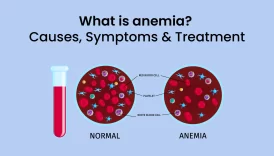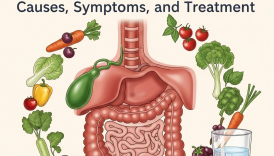What Is the Unprocessed Food Diet? A Complete Guide to Eating Clean

In today’s fast-paced world, many people rely on packaged and processed foods for convenience. However, this dietary habit often comes with hidden risks such as excess sugar, preservatives, refined ingredients, and artificial additives. To counter these risks, more people are turning to the unprocessed food diet—a lifestyle that emphasizes natural, whole, and nutrient-rich foods.
- What Is the Unprocessed Food Diet? A Complete Guide to Eating Clean
- What Is the Unprocessed Food Diet?
- Why Is the Unprocessed Food Diet Important?
- 1. A Healthier Nutrient Intake
- 2. Better Digestion and Gut Health
- 3. Avoiding Harmful Additives
- 4. Weight Management
- 5. Stable Energy Levels
- How to Follow the Unprocessed Food Diet
- Choose Whole Ingredients
- Limit Packaged Foods
- Cook at Home
- Drink Plenty of Water
- Make Gradual Changes
- Potential Challenges of the Diet
- Who Can Benefit from the Unprocessed Food Diet?
This article will explore what the unprocessed food diet is, its benefits, how to follow it, and why it can play a key role in achieving better health and long-term wellness.

What Is the Unprocessed Food Diet?
The unprocessed food diet is a nutritional approach that minimizes the consumption of processed foods while focusing on whole, natural, and minimally altered ingredients. Instead of eating products that contain preservatives, artificial flavors, refined sugars, and unhealthy fats, this diet promotes fresh foods such as:
- Fruits and vegetables
- Whole grains
- Nuts and seeds
- Legumes
- Fresh fish and lean meats
- Healthy oils such as olive oil and avocado oil
The main goal is to consume foods that are as close to their natural state as possible. By doing so, the body receives essential nutrients such as healthy carbohydrates, proteins, vitamins, minerals, and fiber, all of which are often stripped away during food processing.
Why Is the Unprocessed Food Diet Important?
Many processed foods are high in calories yet low in nutrients, often leading to weight gain, fatigue, digestive problems, and chronic health conditions. By avoiding them, the unprocessed food diet supports the body’s natural functions and provides long-term benefits such as:
1. A Healthier Nutrient Intake
Whole, unprocessed foods are packed with vitamins, minerals, antioxidants, and other essential nutrients that help maintain overall health. For instance, fruits and vegetables provide vitamin C, potassium, and folate, while whole grains are excellent sources of fiber and complex carbohydrates.
2. Better Digestion and Gut Health
Unprocessed foods, particularly fruits, vegetables, and legumes, are rich in dietary fiber. Fiber supports healthy digestion, prevents constipation, and promotes a feeling of fullness that can help manage appetite. A high-fiber diet also supports gut microbiota, which plays a crucial role in immunity and overall health.
3. Avoiding Harmful Additives
Processed foods often contain artificial preservatives, refined sugars, sodium, and unhealthy fats. These additives may contribute to health risks such as hypertension, diabetes, and heart disease. By choosing whole foods, you minimize exposure to these harmful substances.
4. Weight Management
Because unprocessed foods are naturally lower in calorie density and higher in fiber, they help promote satiety while reducing overall calorie intake. This makes weight control easier and helps maintain a healthy body mass index (BMI).
5. Stable Energy Levels
Processed foods, especially those rich in refined sugar and white flour, cause rapid spikes and crashes in blood sugar. In contrast, unprocessed foods like whole grains and vegetables release energy slowly, ensuring steady blood sugar levels and consistent energy throughout the day.
How to Follow the Unprocessed Food Diet
Adopting the unprocessed food diet doesn’t have to be complicated. The key is making mindful food choices and gradually replacing processed items with healthier alternatives. Here are some practical steps to get started:
Choose Whole Ingredients
Base your meals on whole and natural ingredients. Stock up on fresh produce, whole grains like oats and quinoa, nuts, seeds, beans, fish, and lean meats.
Limit Packaged Foods
Avoid packaged snacks, fast food, and ready-made meals that often contain preservatives and refined sugars. If you must buy packaged items, read the ingredient labels carefully and choose products with the fewest and most natural ingredients.
Cook at Home
Preparing meals at home gives you full control over what goes into your food. This way, you can avoid hidden sugars, artificial additives, and unhealthy oils often found in restaurant or packaged meals.
Drink Plenty of Water
Hydration is a critical part of the unprocessed food diet. Water supports digestion, regulates body temperature, and prevents overeating by reducing false hunger signals. Replace sugary drinks with plain water, herbal teas, or fresh fruit-infused water.
Make Gradual Changes
If you are new to the unprocessed food diet, don’t try to change everything at once. Start by eliminating one processed item at a time—such as soda or packaged snacks—and replace it with a healthier option. Over time, these small changes add up to a sustainable lifestyle shift.
Potential Challenges of the Diet
Like any lifestyle change, the unprocessed food diet may present certain challenges:
- Accessibility: Fresh, whole foods may not always be readily available, especially in areas where processed foods are more affordable and convenient.
- Preparation time: Cooking from scratch requires more time and effort compared to heating packaged meals.
- Cost: In some cases, fresh and organic produce may be more expensive. However, buying in-season foods and cooking in bulk can reduce costs.
Despite these challenges, the long-term health benefits make the effort worthwhile.
Who Can Benefit from the Unprocessed Food Diet?
Almost everyone can benefit from adopting a diet rich in unprocessed foods. However, it may be especially helpful for individuals who:
- Struggle with weight management
- Experience digestive issues
- Have chronic fatigue or unstable energy levels
- Want to improve cardiovascular health
- Seek a natural and sustainable approach to eating
That said, individual nutritional needs vary. It’s always best to consult a healthcare professional or registered dietitian before making major changes to your diet.
The unprocessed food diet is more than just a short-term eating plan—it’s a long-term lifestyle that encourages mindful food choices and prioritizes natural nutrition. By reducing your intake of processed foods and focusing on whole, nutrient-rich options, you can improve digestion, stabilize energy levels, manage your weight, and protect your overall health.
While it may require more time and planning, the benefits of eating clean far outweigh the challenges. With gradual adjustments and consistent effort, anyone can successfully embrace this way of eating and enjoy a healthier, more vibrant life.






